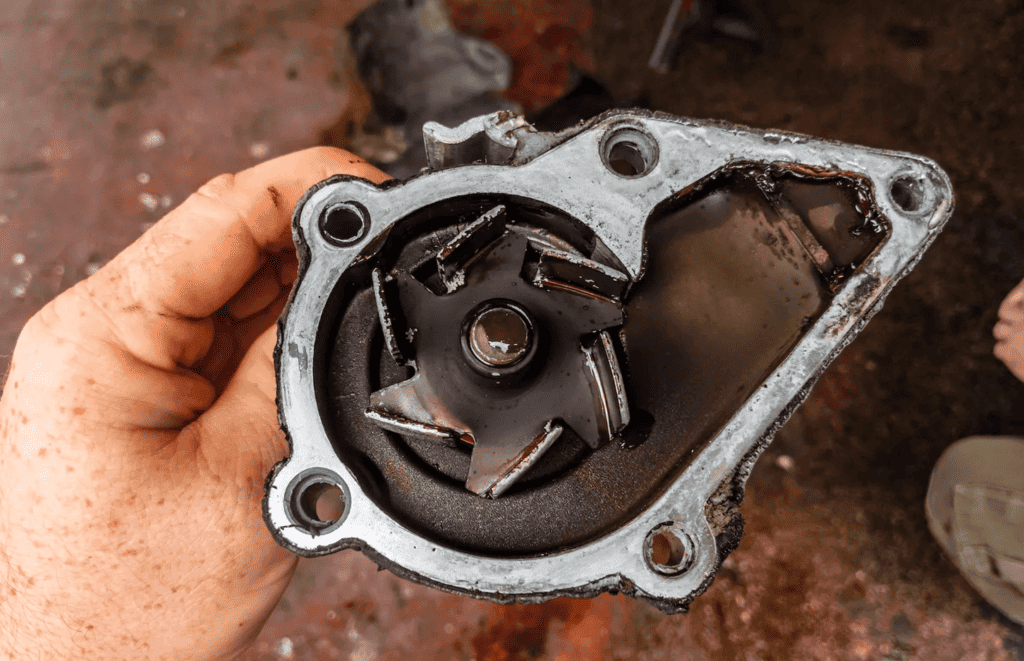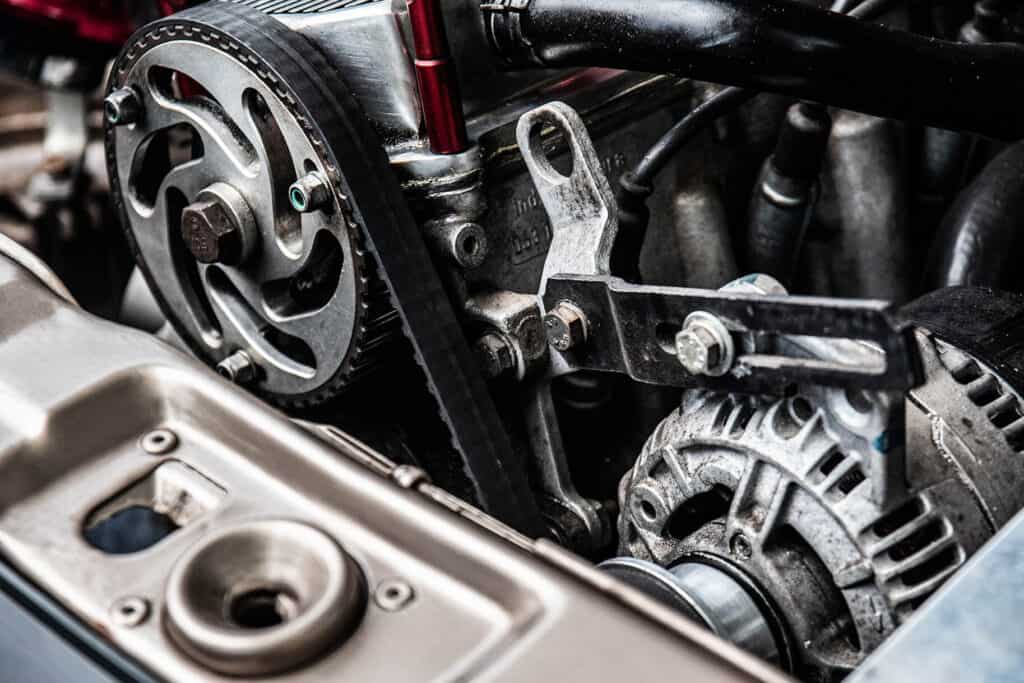The Heart of Your Vehicle’s Cooling System
Your vehicle’s engine is a marvel of engineering, but it generates an incredible amount of heat during operation. To prevent it from overheating, a critical component comes into play: the water pump. Often overlooked, the water pump plays a pivotal role in maintaining your engine’s temperature and overall health. In this article, we’ll delve into the inner workings of your vehicle’s water pump and provide practical tips to ensure it serves you faithfully throughout your vehicle’s lifespan.
Understanding Your Water Pump: Basics and Functionality
At its core, the water pump is a mechanical device with a vital role in your vehicle’s cooling system. Picture it as the engine’s circulatory system; its primary function is to ensure the smooth flow of coolant, usually a mixture of water and antifreeze, throughout your engine. This continuous circulation serves as a cooling mechanism, allowing the coolant to absorb the excess heat generated by the engine during operation. The coolant then carries this heat away from the engine to dissipate it, preventing the engine from overheating. It also plays a crucial role in preventing freezing, especially in cold weather conditions. Without a properly functioning water pump, your engine would be at risk of overheating, leading to potentially severe damage and expensive repairs.
In essence, the water pump is the unsung hero of your vehicle’s cooling system, tirelessly working to maintain your engine at an optimal operating temperature. It ensures that your engine doesn’t reach dangerously high temperatures, protecting it from overheating or freezing, regardless of the weather conditions. Understanding its role is essential because it highlights the importance of regular maintenance to ensure the water pump continues to perform its vital function effectively.

Regular Maintenance Checks: The Key to Longevity
Keeping your vehicle in top shape requires a proactive approach, and the water pump is no exception. Regular maintenance checks are a critical aspect of ensuring the longevity and performance of your water pump. During these routine inspections, pay close attention to the condition of the water pump. Look for signs of leaks, which can be indicative of wear and tear or potential gasket issues. Coolant leaks are a serious concern as they can lead to engine overheating and costly repairs. Additionally, inspect the drive belt or timing belt that powers the water pump. A loose or damaged belt can disrupt the pump’s operation, affecting the entire cooling system’s efficiency.
By diligently conducting these checks at recommended intervals, you can identify and address water pump issues early, preventing them from escalating into more extensive and expensive problems. Regular maintenance not only safeguards the health of your water pump but also contributes to the overall reliability and longevity of your vehicle. It’s a small investment of time and effort that pays off in the form of a well-maintained vehicle that serves you reliably for years to come.
Fluid Dynamics: The Role of Coolant in Water Pump Health
Understanding the critical role of coolant in your vehicle’s water pump health is paramount. Coolant is not just a simple liquid; it’s a multifaceted solution that plays a pivotal role in maintaining the efficiency and longevity of your water pump. First and foremost, coolant serves as a guardian against freezing, preventing your engine and its vital components from suffering the consequences of extreme cold. However, its duties go well beyond that. Coolant also acts as a shield against corrosion, safeguarding the delicate internal components of the water pump. It accomplishes this by containing anti-corrosion additives that prevent rust and deterioration, extending the life of the pump. Moreover, coolant doubles as a lubricant for the water pump’s moving parts, reducing friction and wear during operation. This lubrication is essential for the smooth functioning of the pump, ensuring it continues to circulate coolant effectively.
To ensure your water pump operates optimally, it’s imperative to use the manufacturer-recommended coolant and maintain the proper coolant level. Using the correct coolant type guarantees compatibility with your vehicle’s cooling system and water pump, preventing potential chemical reactions that could harm these components. Regularly checking the coolant level is equally vital, as low levels can lead to engine overheating, placing undue stress on the water pump. Additionally, conduct periodic inspections of the coolant for any signs of contamination or deterioration. Contaminated or deteriorated coolant can lose its effectiveness, potentially compromising the water pump’s ability to protect your engine from overheating and corrosion. By understanding the multifaceted role of coolant and maintaining it diligently, you contribute to the overall health and longevity of your water pump and your vehicle’s cooling system as a whole.
Recognizing Early Warning Signs of Water Pump Wear
Early detection of water pump issues is crucial for preventing costly breakdowns. Here are detailed bullet points on how to recognize these warning signs:
• Unusual Noises: Listen for any unusual noises emanating from the water pump area, such as a high-pitched whining sound or grinding. These noises can indicate problems with the pump’s bearings or impellers.
• Coolant Leaks: Check underneath your vehicle for signs of coolant leaks. Puddles or spots of coolant on the ground are clear indicators of a leak in the cooling system, possibly originating from the water pump.
• Overheating: Keep an eye on your engine’s temperature gauge. If you notice a sudden and significant increase in engine temperature, it could be a sign that the water pump is failing to circulate coolant effectively.
• Coolant Discoloration: Examine the color and condition of your coolant. If it appears rusty, contaminated, or deteriorated, it may suggest problems with the water pump or the cooling system as a whole.
• Weeping Hole Dampness: Some water pumps have a weeping hole that can indicate internal seal failure. If you notice dampness or coolant residue near this hole, it’s a potential sign of trouble.
• Reduced Cooling Performance: If your engine doesn’t maintain its normal operating temperature or if you experience fluctuations in cooling performance, it could be due to water pump issues. An ineffective water pump may not circulate coolant efficiently.
• Steam or Smoke: In extreme cases, a failing water pump can lead to steam or smoke rising from the engine compartment due to coolant overheating. If you see this, pull over immediately and turn off the engine to prevent further damage.
• Check Engine Light: Modern vehicles are equipped with sensors that can detect cooling system problems. If your check engine light comes on, it’s advisable to have your vehicle’s diagnostics checked by a professional mechanic to determine the issue.

The Impact of Driving Habits on Water Pump Durability
Your driving habits can significantly affect the lifespan of your water pump. Here’s a detailed breakdown of how different driving habits can impact water pump durability:
• Frequent Stop-and-Go Driving: City driving with constant stops and starts increases the workload on the water pump. It must circulate coolant more frequently, which can accelerate wear and tear.
• Heavy Traffic Conditions: Driving in heavy traffic, where engine temperature fluctuations are common, can put additional stress on the water pump. The constant adjustments to temperature can lead to increased wear.
• Maintaining a Consistent Speed: To minimize wear and tear on the water pump, aim to maintain a consistent speed on highways whenever possible. Avoid unnecessary acceleration and braking, as sudden changes in engine load can strain the pump.
• Proper Weight and Towing: Ensure you’re not overloading your vehicle beyond its recommended capacity. Overloading can increase the load on the engine, making the water pump work harder to maintain the right temperature.
• Avoiding Excessive Idling: Excessive idling can lead to overheating, which can place additional stress on the water pump. If you find yourself in situations where you need to idle for an extended period, consider turning off the engine when it’s safe to do so.
• Regular Coolant Checks: Keep a close eye on your coolant levels and quality. Proper coolant maintenance ensures the water pump has the right fluid to circulate, reducing the risk of overheating and wear.
By being aware of these driving habits and early warning signs of water pump wear, you can take proactive steps to maintain your vehicle’s cooling system and extend the lifespan of this critical component.
Professional Inspection and Replacement: When to Seek Help
While regular maintenance and vigilance can prolong your water pump’s life, there may come a time when professional intervention is necessary. If you suspect water pump issues or encounter persistent cooling system problems, consult a skilled mechanic promptly. Delaying expert consultation can lead to extensive engine damage and higher repair costs. Professional inspection and timely replacement, when required, can save you both time and money in the long run.
Prolonging the Life of Your Water Pump
In conclusion, the water pump is a silent hero of your vehicle’s cooling system, tirelessly working to keep your engine at the right temperature. By understanding its importance, performing regular maintenance checks, using the right coolant, recognizing early warning signs, and driving with care, you can extend the life of your water pump and ensure optimal engine performance. Remember that proactive vehicle care is the key to a long and trouble-free journey on the road. When the time comes for professional assistance, seek the expertise of a qualified mechanic. By following these practical tips, you’ll not only maximize the lifespan of your water pump but also enjoy improved vehicle performance and peace of mind on every drive. For all your vehicle maintenance needs, consider contacting a reliable mobile mechanic like Uchanics for convenient and professional service.
